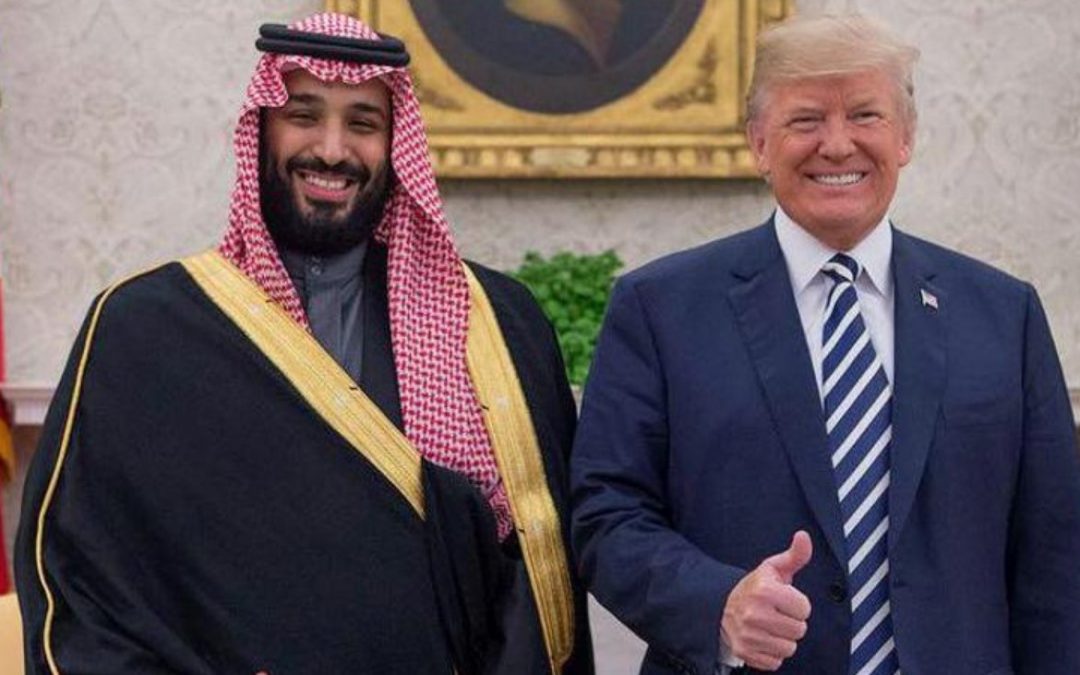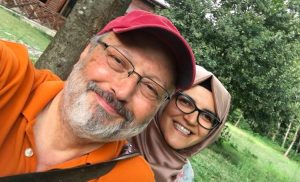The U.S. Senate late today failed to override President Trump’s veto of legislation passed by Congress that would have blocked the sale of certain weapons to Saudi Arabia.
By a vote of 45-40, the Senate fell short of the two-thirds votes needed to overturn a presidential veto. Five of the chamber’s 53 Republicans voted to override the Republican president. Fifteen senators did not vote.
The Senate was also set to vote on Monday on two more veto overrides of legislation blocking weapons sales to Saudi Arabia, the United Arab Emirates and other countries.
In May, the Trump administration announced that it would go ahead with more than $8 billion in military sales, sidestepping a congressional review process.
The legislation would have blocked the sale of Raytheon Co precision-guided munitions and related equipment.
Congress’ effort was aimed at attempting to pressure the Saudi government to improve its human rights record and to do more to avoid civilian casualties in a war in Yemen, where Saudi Arabia and the UAE lead an air campaign against Iran-backed Houthi rebels.
Congressional sentiment toward Saudi Arabia worsened after the murder of Saudi journalist and Washington Post columnist Jamal Khashoggi, a U.S. resident, at a Saudi consulate in Turkey last year.
Trump has argued that cutting off the Saudi weapons sales would weaken U.S. relations with a long-time ally and hurt U.S. competitiveness.
[Trump’s Business Ties To Saudi Arabia Questioned]
Trump has defended Saudi Arabia throughout his presidency, in part because he’s done millions of dollars worth of business there.
Son-in-law Jared Kushner also has a massive amount of business dealings in Saudi Arabia.
Trump registered eight companies during his presidential campaign that were tied to hotel interests in that country.
The companies were registered under names such as THC Jeddah Hotel and DT Jeddah Technical Services, according to financial disclosure filings.
During a rally in 2015, the day Trump created four of those companies, he said he gets along well with Saudi Arabia.
“They buy apartments from me. They spend $40 million, $50 million. Am I supposed to dislike them? I like them very much.”
After his election, Trump said on Fox News he “would want to protect Saudi Arabia.”
He did respond in April when the barbaric religious state put the body of a crucified criminal on public display after the execution of 37 nationals in one day.
State-run media carried statements this week to say those executed had “adopted extremist ideologies and formed terrorist cells with the aim of spreading chaos and provoking sectarian strife.”
That’s code for: Promoting free thought outside religious theocracy.
The U.N. human rights chief condemned the beheadings, saying most were minority Shi’ite Muslims who may not have had fair trials and at least three were minors when sentenced.
Under international law, putting to death anyone who was under 18 at the time of the crime is strictly prohibited.
It was also Saudi Arabia that was involved in the 9/11 attacks.
Osama bin Laden, the terrorist mastermind and founder of al Qaeda, was born in Saudi Arabia in 1957.
Fifteen of the nineteen hijackers, who brought down the World Trade Center in New York City and put a hole in the Pentagon in Washington, D.C. were citizens of Saudi Arabia.
Evidence submitted in a major 9/11 lawsuit moving forward against the Saudi Arabian government reveals its embassy in Washington may have funded a “dry run” for the hijackings carried out by two Saudi employees, further reinforcing the claim that employees and agents of the kingdom directed and aided the 9/11 hijackers and plotters.
Two years before the airliner attacks, the Saudi Embassy paid for two Saudi nationals, living undercover in the US as students, to fly from Phoenix to Washington “in a dry run for the 9/11 attacks,” alleges the amended complaint filed on behalf of the families of some 1,400 victims who died in the terrorist attacks 19 years ago.
The court filing provides new details that paint “a pattern of both financial and operational support” for the 9/11 conspiracy from official Saudi sources, lawyers for the plaintiffs say. In fact, the Saudi government may have been involved in underwriting the attacks from the earliest stages — including testing cockpit security.
Citing FBI documents, the complaint alleges that the Saudi students — Mohammed al-Qudhaeein and Hamdan al-Shalawi — were in fact members of “the Kingdom’s network of agents in the US,” and participated in the terrorist conspiracy.
“We’ve long asserted that there were longstanding and close relationships between al Qaeda and the religious components of the Saudi government,” said Sean Carter, the lead attorney for the 9/11 plaintiffs. “This is further evidence of that.”

